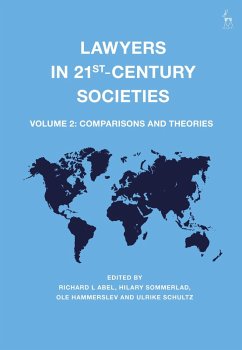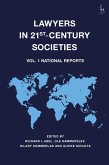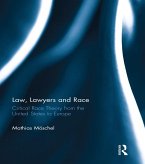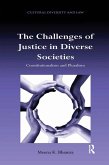This book presents an invaluable collection of essays by eminent scholars from a wide variety of disciplines on the main issues currently confronting legal professions across the world.
It does this through a comparative analysis of the data provided by the reports on 46 countries in its companion volume: Lawyers in 21st-Century Societies: Vol. 1: National Reports (Hart 2020). Together these volumes build on the seminal collection Lawyers in Society (Abel and Lewis 1988a; 1988b; 1989).
The period since 1988 has seen an acceleration and intensification of the global socio-economic, cultural and political developments that in the 1980s were challenging traditional professional forms. Together with the striking transformation of the world order as a result of the fall of the Soviet bloc, neo-liberalism, globalisation, the financialisation of capitalism, technological innovations, and the changing demography of lawyers, these developments underscored the need for a new, comparative exploration of the legal professional field.
This volume deepens the insights in volume 1, with chapters on legal professions in Africa, Latin America, the Islamic world, emerging economies, and former communist regimes. It also addresses theoretical questions, including the sociology of lawyers and other professions (medicine, accountancy), state production, the rule of law, regional bodies, large law firms, access to justice, technology, casualisation, cause lawyering, diversity (gender, race, and masculinity), corruption, ethics regulation, and legal education.
Together with volume 1, it will inform and challenge conceptions of the contemporary profession, and stimulate and support further research.
It does this through a comparative analysis of the data provided by the reports on 46 countries in its companion volume: Lawyers in 21st-Century Societies: Vol. 1: National Reports (Hart 2020). Together these volumes build on the seminal collection Lawyers in Society (Abel and Lewis 1988a; 1988b; 1989).
The period since 1988 has seen an acceleration and intensification of the global socio-economic, cultural and political developments that in the 1980s were challenging traditional professional forms. Together with the striking transformation of the world order as a result of the fall of the Soviet bloc, neo-liberalism, globalisation, the financialisation of capitalism, technological innovations, and the changing demography of lawyers, these developments underscored the need for a new, comparative exploration of the legal professional field.
This volume deepens the insights in volume 1, with chapters on legal professions in Africa, Latin America, the Islamic world, emerging economies, and former communist regimes. It also addresses theoretical questions, including the sociology of lawyers and other professions (medicine, accountancy), state production, the rule of law, regional bodies, large law firms, access to justice, technology, casualisation, cause lawyering, diversity (gender, race, and masculinity), corruption, ethics regulation, and legal education.
Together with volume 1, it will inform and challenge conceptions of the contemporary profession, and stimulate and support further research.









